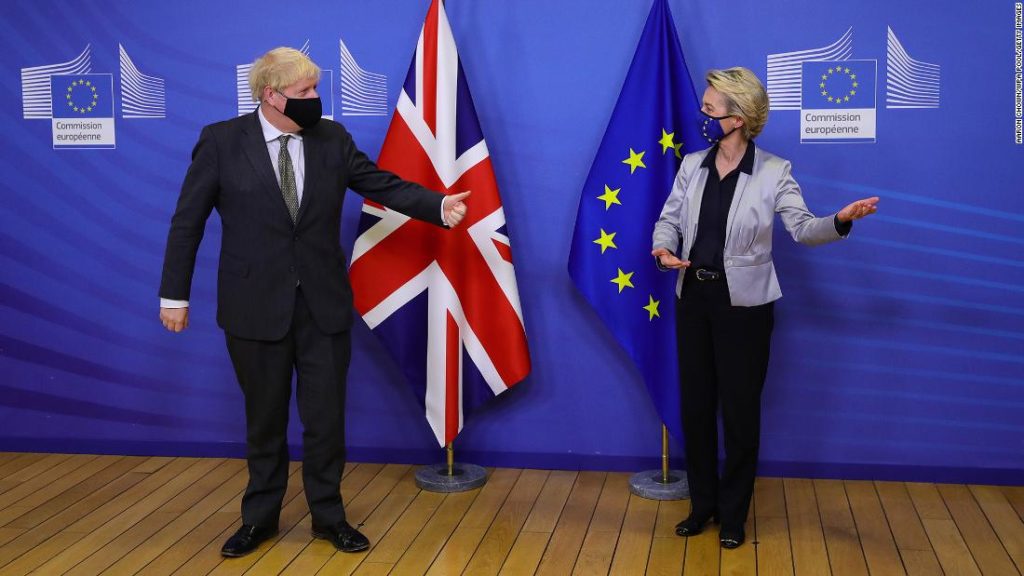No new deadline has been announced on Sunday, but von der Leyen said it was “responsible” to go “the extra-mile,” adding that she had “constructive and useful” phone call with Johnson.
Speaking in London, Johnson said the two sides remain “far apart on key issues,” and warned that “the most likely thing now is we have to get ready for WTO terms, Australia terms,” he warned.
Australia doesn’t have a free trade agreement with the European Union, even though talks to secure one are in progress. The expression “Australia terms” has been widely used by Johnson and his government as an euphemism for a no-deal Brexit.
But the term is misleading, because Australia and the EU already have a Mutual Recognition Agreement, which makes it easier for manufacturers to secure the regulatory approvals needed to sell their goods. However, the UK doesn’t have such an agreement with the EU.
If no deal is agreed, it would be forced to trade with the bloc according to rules set out by the World Trade Organization. That would mean new tariffs and other barriers, such as regulatory checks and paperwork.
The British PM said his government will continue to try to reach a trade deal, but warned there may not be a resolution by the January 1 deadline. “I do think there is a deal to be done but we remain far apart on key issues.:
“And we have to take back control of our fisheries,” Johnson said.
The European Union and the UK have been trying for months to agree on a trade deal before the Brexit “transition period” ends at midnight on December 31. Earlier this week, a joint statement by Johnson and von der Leyen cited three “critical” sticking points: fishing rights, the UK’s ability to diverge on EU standards, and legal oversight of any deal.
Failing to reach a trade deal would be economically painful for both the EU and the UK, although the impact on the UK would be disproportionately larger, because the EU is by far its biggest trading partner. Losing access to its single market would cut UK’s businesses off from Europe’s 450 million consumers, and burden them with extra tariffs and red tape.
The UK Office for Budget Responsibility (OBR) estimates that a no-deal Brexit would knock off £40 billion ($53 billion), or 2%, of the UK’s economic output in 2021, and leave more than 300,000 people unemployed by the second half of next year.
However, the OBR said in November that even if London and Brussels can reach a deal, their new trading relationship is expected to lead to a long-run loss of output of around 4% compared to Britain remaining in the European Union.
Ireland, which stands to lose the most on the EU side, said it was “absolutely imperative” that the UK and the EU reach a post-Brexit deal. The Irish Prime Minister, or Taoiseach, Micheál Martin told the BBC on Sunday that a no-deal scenario would be “so damaging to workers” in the UK, Ireland and across Europe, and represent “an appalling failure of statecraft.”
Johnson said on Thursday that he had directed his cabinet to prepare for talks to fail, and the EU has released plans aimed at keeping its borders open to commercial aircraft, trains and trucks.
The UK Ministry of Defense said Saturday the UK will have “a range of robust enforcement measures” available at the end of the Brexit transition period, including “numerous” offshore patrol vessels available in its territorial waters.
You may also like
-
Afghanistan: Civilian casualties hit record high amid US withdrawal, UN says
-
How Taiwan is trying to defend against a cyber ‘World War III’
-
Pandemic travel news this week: Quarantine escapes and airplane disguises
-
Why would anyone trust Brexit Britain again?
-
Black fungus: A second crisis is killing survivors of India’s worst Covid wave

